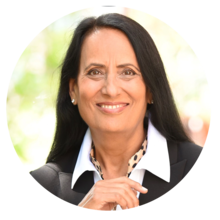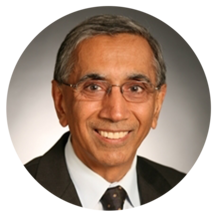About this Presentation
The list of crises – heroin addiction, financial meltdown, runaway debt, obesity epidemic – not only grows, but each crisis suggests a world teetering on the brink of catastrophe. Little improvement is made, while any change only seems to exacerbate the issue with unintended – but predictable – consequences. While teaching two introductory statistics courses at University of Missouri-Kansas City, I have used Alan Barnard’s ProConCloud process as an entry point for students to not only do rapid research on a subject of interest to them, but also target research to answer specific questions raised by the process. The end product is a well written research paper averaging 12 pages, with the only rubric being “Am I Proud of My Paper When I Look in the Mirror?” In addition to a meaningful project to each student, this structured but natural process has allowed different points of view to be verbalized, leading to a classroom alive with polite discussion about topics that are typically “off-limits”. This webinar will discuss some of the assignments, things that worked well, things that didn’t, the affect rapid research can have on a project, and other issues.
What Will You Learn
To help you get the most value from this session, we’ve highlighted a few key points. These takeaways capture the main ideas and practical insights from the presentation, making it easier for you to review, reflect, and apply what you’ve learned.

The ProConCloud method can be more effective than the Evaporating Cloud in certain contexts, as it allows for a more explicit expression of emotions and motivations.
Authentic discussion, including expressions of anger and blame, can be productive in problem-solving.
The ProConCloud method can be used to understand the root cause of a problem, the motivations behind actions, and the potential consequences of different solutions.
Instructor(s)
Michael Round

Ms Alka Wadhwa
Alka Wadhwa is an experienced consultant and process improvement expert with over 24 years of expertise in the Theory of Constraints (TOC), Lean Six Sigma, and organizational performance optimization. She has successfully led projects in healthcare, financial services, and manufacturing, driving significant improvements such as a 67% boost in hospital operations and a 140% increase in outpatient visits.
Previously, Alka Wadhwa spent 17+ years at GE Global Research Center, where she led initiatives to enhance various GE businesses through advanced technologies, process redesign, and system optimization. Founder of Better Solutions Consulting, LLC, she specializes in using TOC, Six Sigma, and data analytics to streamline operations and build high-performance teams.
Her work has earned her multiple accolades, including the Empire State Award of Excellence in healthcare.

Dr Gary Wadhwa
Dr. Gary Wadhwa is a Board Certified Oral & Maxillofacial Surgeon with extensive experience in the field. He completed his Oral & Maxillofacial Surgery training at Montefiore Hospital, Albert Einstein College of Medicine in Bronx, NY, and has served as an Attending at prestigious institutions like St. Peters Hospitals, Ellis Hospital, and Beth Israel Hospital in NY. With a career spanning over two decades, he was the former CEO and President of a group specialty practice in NY from 1994 to 2015. Dr. Wadhwa holds an MBA from UT at Knoxville, TN, and has undergone additional training in System Dynamics at MIT, Health System Management at Harvard Business School, and Entrepreneurship and healthcare innovations at Columbia Business School. Committed to expanding access to Oral & Maxillofacial Surgery care, he is currently engaged in a meaningful project to provide healthcare services to underserved populations in inner city and rural areas through non-profit Community Health Centers.
